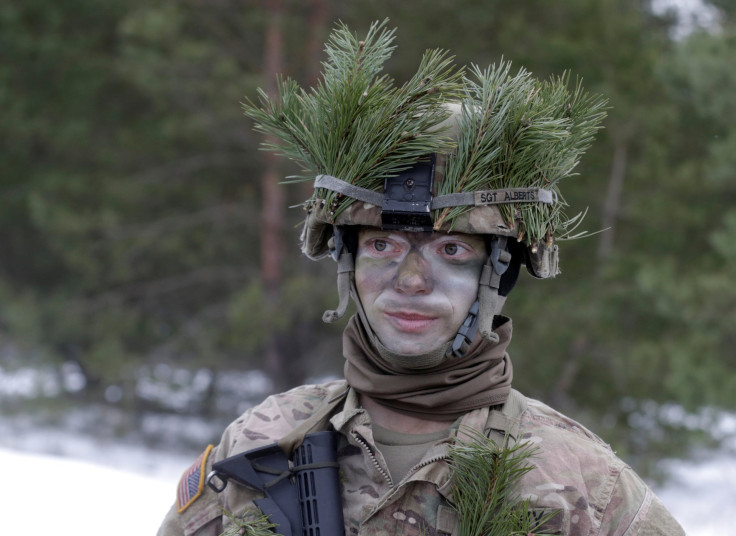US Could Go To War With Russia, North Korea In 2017, Top Security Experts Warn

Russia and the North Atlantic Treaty Organization could go to war in 2017, according to a survey of international experts. The conflict between Western Europe and Moscow would likely draw in the United States under NATO's military agreement, fueling tensions between Washington and the Kremlin after years of terse rhetoric, according to the survey from the Council on Foreign Relations.
The survey asked foreign policy experts to predict what conflicts the U.S. might found itself ensnared in during 2017 based on their likelihood of occurring. The survey asked the experts to rank seven potential "top tier" conflicts. Asked about "a deliberate or unintended military confrontation between Russia and NATO members, stemming from assertive Russian behavior in Eastern Europe," respondents said the likelihood of such a conflict was "moderate," but the impact would be "high." Washington and Western European leaders have passed sanctions against Russia in recent years over its aggressive policy in Eastern Europe, including annexing Crimea from Ukraine in 2014.
Experts also said they were concerned about a conflict with North Korea over its nuclear or intercontinental ballistic missile weapons testing. Other fears included a cyberattack on U.S. infrastructure, a terrorist attack on domestic soil, a government collapse in Afghanistan and internal conflict in Turkey.
“With a new presidential administration assuming office, it is important to help policymakers anticipate and avert potential crises that could arise and threaten U.S. interests. Our annual survey aims to highlight the most likely sources of instability and conflict around the world so that the government can prioritize its efforts appropriately,” said Paul B. Stares, director of the study.
Security experts and intelligence officials have warned about the potential for a deadly conflict between the U.S. and another world leader for some time, and President-elect Donald Trump's promises to get along with Russia and North Korea haven't quelled those concerns.
America’s top intelligence official recently said tellingNorth Korea to give up its nuclear weapons was “probably a lost cause.” James R. Clapper Jr., the director of national intelligence, said during a speech at the Council on Foreign Relations in October that despite a host of international sanctions, North Korea will probably continue to test nuclear bombs and missiles that could direct warheads at the United States.
“I think the notion of getting the North Koreans to denuclearize is probably a lost cause,” Clapper said. “They are not going to do that,” he said. “That is their ticket to survival.”
He also said Russia was capable of shooing down a U.S. aircraft in Syria as both nations fight on opposite sides of the Syrian civil war between the government and rebel groups, the New York Times reported.
Trump has said he will improve the U.S.' standing with Russia and North Korea. But he also been accused of being too close to the Kremlin while criticizing Washington's NATO allies by demanding they spend more on defense. Most recently, White House spokesman Josh Earnest said Wednesday Trump may have known Russia was carrying out attacks on Democrats during the presidential election to help the Republican nominee win. Trump has called allegations that Russian helped him take the White House bogus.
"There’s ample evidence that was known long before the election and in most cases long before October about the Trump campaign and Russia — everything from the Republican nominee himself calling on Russia to hack his opponent," Earnest said. "It might be an indication that he was obviously aware and concluded, based on whatever facts or sources he had available to him, that Russia was involved and their involvement was having a negative impact on his opponent’s campaign."
© Copyright IBTimes 2024. All rights reserved.












